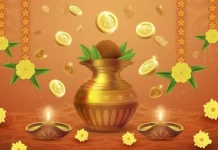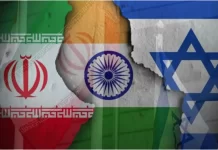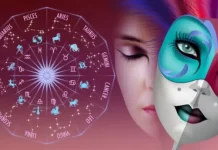Pitru Paksha 2022: Dos and Don’ts During The 15-day Period
Sarvapitru Amavasya: Significance of Rituals on The Last Day of Pitru Paksha
Sarva Pitru Amavasya is also known as Mahalaya Amavasya. Here Maha means great and Laya means destruction. According to the lunar calendar, Sarva Pitru Amavasya is celebrated on the new moon day of Bhadrapada month. Besides, according to the English calendar, Sarva Pitru Amavasya falls somewhere between September and October. Sarva Pitru Amavasya marks the end of the fortnight which is known as Pitru Paksha. Sarva Pitru Amavasya is one of the most important dates in the Hindu calendar. So in this article we will know when is Sarva Pitru Amavasya 2022, what to do on Sarva Pitru Amavasya, Sarva Pitru Amavasya Shraddha Vidhi and how you can reduce the effects of difficult astrological yogas like Pitru Dosh on Sarva Pitru Amavasya.
When is Sarva Pitru Amavasya or Mahalaya Amavasya?
This year Sarvapitru Amavasya will fall on Sunday, Sept 25, 2022.
| Sarvapitru Amavasya | Date / Time |
|---|---|
| Amavasya date Starts | Sep 25, 2022 at 03:12 am |
| Amavasya date Ends | Sep 26, 2022 at 03:23 am |
Sarva Pitru Amavasya 2022 Muhurta
On the occasion of Sarva Pitru Amavasya Shradh, other than Kutup and Rohin Muhurtas, the afternoon period is also considered auspicious.
Sarva Pitru Amavasya 2022 Shubh Muhurtas:
| Muhurat | Timings |
|---|---|
| Kutup Muhurat | 12:07 pm to 12:55 pm |
| Duration | 00 Hours 48 Mins |
| Rohina Muhurat | 12:55 pm to 01:44 pm |
| Duration | 00 Hours 48 Mins |
| Aparahna Kaal | 01:44 pm to 04:08 pm |
| Duration | 02 Hours 25 Mins |
Performing Shradh on the occasion of Sarva Amavasya is believed to grant peace to the ancestral souls. If you fulfill your duty to your father and other ancestors, you will reap the fruits of his virtues and you can get happiness, prosperity and peace in your life.
On this day we perform Shradh and Tarpan rituals for our deceased family members. Tithis Chaturdashi, Purnima or Amavasya are even more important for performing ancestral rituals. Sarva Pitru Amavasya is the universal time when you can perform Shradh of your parents and ancestors if you cannot and do not perform it on any other days during Shradh Paksh. The Shradh ritual performed on this day is considered as auspicious and sacred as the Shradh ritual performed in the holy city of Gaya. Gaya is considered a very special place for Shradh rituals. Usually the Shradh is performed by the eldest son or a male relative from the paternal side of the family who belongs to the previous three generations only. However, on Sarvapitri Amavasya, a daughter’s son can also perform Shradh for the mother’s side of the family if there is no male heir in the mother’s family. If the date of father’s death is not known, his Shradh can also be performed on Sarva Pitru Moksha Amavasya.
According to Hinduism, it is believed that one has to repay three kinds of debts to get a new life without any pain. Dev debt (what we owe to Gods), Rishi debt (what we owe to seers, gurus and guides of mankind) and Pitra debt (what we owe to our deceased parents or forefathers or forefathers)! According to belief, it is a day when we can repay the debt we owe to God, Guru and ancestors. According to the Sanatan tradition of Hinduism, a son must serve the departed souls of his parents by performing Shradh. This act brings relief to the departed souls who bestow success and happiness upon us. The importance of these rites and rituals are mentioned in various Puranas such as Garuda Purana, Vayu Purana, Agni Purana, Matsya Purana and Markandeya Purana.
Benefits of performing Shradh on Sarva Pitru Amavasya
Shradh offerings help to obtain the blessings of Lord Yama. The family remains safe from all diseases and gets rid of all obstacles. Gives peace to the souls of departed ancestors. You are blessed with a long and prosperous life.
According to the Vedic scriptures, if we fulfill our obligations to our deceased father, his spiritual entity, who resides in some other spiritual realm, will give us the desired blessings with the help of his powers. According to various astrologers, ancestors can also cure our hereditary diseases, so we can get rid of serious diseases by pleasing our ancestors by performing Shraddha rituals properly. The blessings of our ancestors can also be very beneficial in amicably resolving family disputes related to ancestral property. The blessings of Pitru also prove to be very effective in resolving various other types of family disputes and estrangements. We can also perform Pitra Shradh to remove Pitra Dosh or problems related to children.
Get to know the problems you face in your life and find accurate and simple solutions to them!
If you love yourself and your family members like your father, brother, sister, wife, then you should definitely do Shradh at least on Sarvapitri Amavasya day to give peace to the souls of your departed ancestors. In this way you can avoid Pitra Dosh and reduce your suffering in life. But if one is unable to perform the Shradh rituals due to some compelling reasons, then one can take a vow and do it in the coming years.
It is believed that the souls of deceased loved ones roam the earth. According to the belief, these activities of the ancestors can sometimes adversely affect the family members. It is therefore important to appease these souls because their anger and curse can cause problems for the family. On the day of Sarvapitri Amavasya even the young boys of the family should learn these rituals and continue them in the future as only then the bright future of the family is assured. Sarva Pitru Amavasya is a time when we can express our gratitude to our ancestors for what they are – our ancestors.
Astrologically, those who have Pitru Dosh in their horoscope must perform Shradh rituals with full devotion to reduce or get rid of this dosha. People who have back to back problems in their life especially related to debt, illness and disease should perform Shradh rituals especially on Sarva Pitru Amavasya.
Scientific Significance of Sarva Pitru Amavasya
The three (deceased) previous generations as well as our mythological ancestral lines (gotras) are included in Shradhu. The names of our ancestors are recited during Shradh rituals.


















